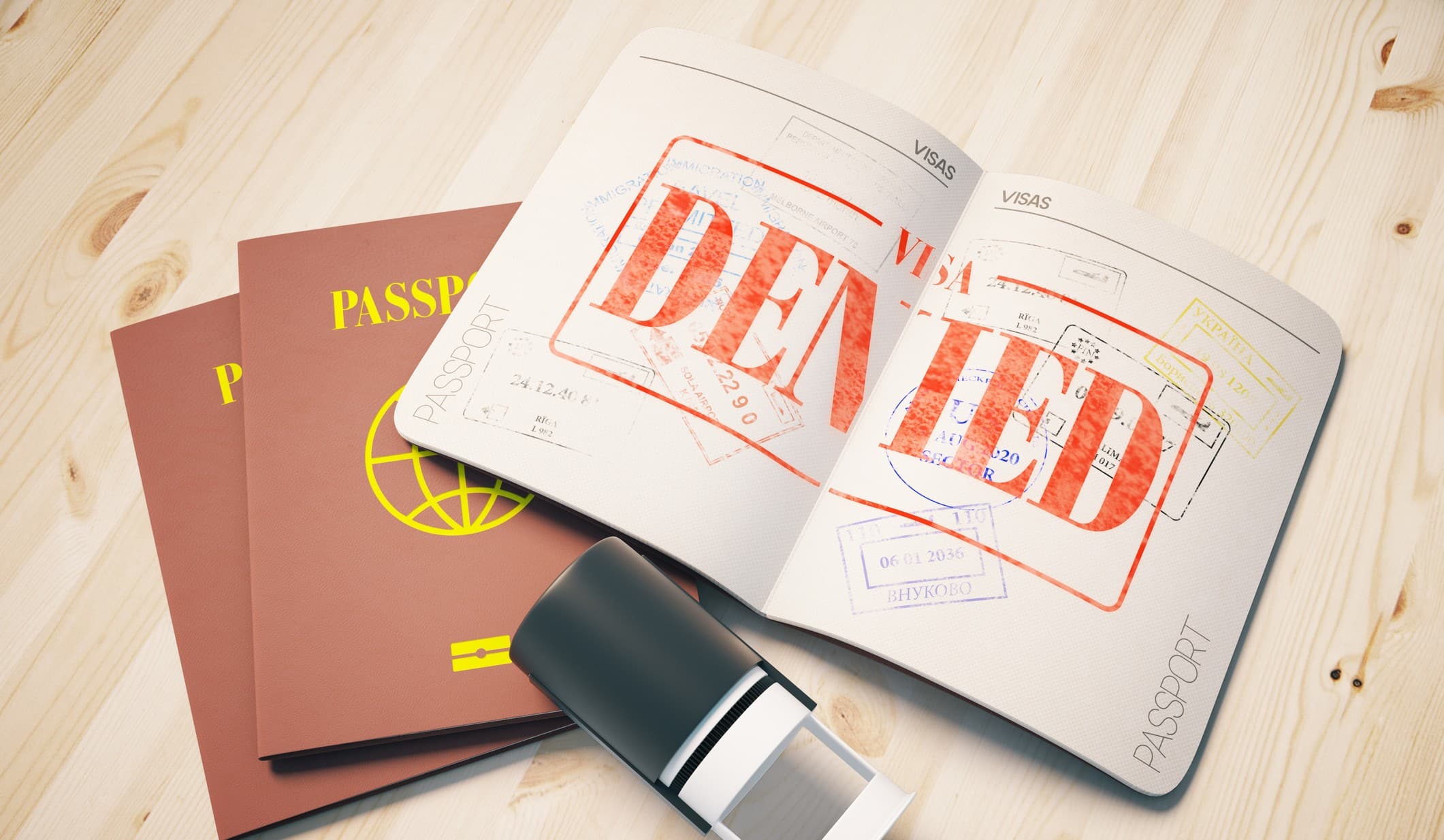Understanding Next Steps After Your Family Sponsorship Green Card Application Is Denied
Getting a Green Card offers many benefits. It means that your permanent resident status isn’t affected by future immigration changes, and you enjoy all the legal protections the United States offers. It also allows you to travel more freely, and you are eligible for some federal benefits, such as Social Security. A Green Card also offers a path to U.S. Citizenship if that’s your goal.
When you are pinning your hopes and future on having your Green Card application accepted, receiving a notice of denial can be devastating. However, the team at Hall Trial Lawyers, PLLC, is here to help. We can determine why your family sponsorship Green Card application was denied and help you appeal the decision or pursue another option that is not based on family immigration.
Common Reason for Denial
To be approved for a family-based Green Card, you must meet all the qualifications, have supporting documentation, and ensure all the paperwork is filled out completely and accurately. If there are any issues or errors with any piece of the process, it can result in a denial. Some of the most common reasons family-based Green Cards aren’t approved include the following.
Not Properly Establishing the Family Relationship
Family-based Green Cards rely on a family member sponsoring you. Depending on the visa type, that family member could be your adult child, your spouse, or a sibling. The relationship must be verifiable through official documentation, such as a birth certificate or marriage license. If there is an issue with that documentation, it can result in a denial.
The Sponsor Not Meeting the Financial Requirements
Sponsors are required to have a minimum income to be able to sponsor a family member’s Green Card. If the sponsor is not able to provide documentation showing they meet that threshold, the application will be denied.
Inaccurate or Missing Information
Applying for a family sponsorship Green Card usually requires the sponsor to first file Form I-130, the Petition for Alien Relative, and then the applicant to file Form I-485, the Application to Adjust Status. Any missing or inaccurate information, such as unanswered questions, missing signatures, or names and dates not aligning with supporting documentation, can cause the petition or application to be denied.
Being Ineligible for a Green Card
In some cases, the applicant may be entirely ineligible for a Green Card, which can happen when they have certain criminal convictions or specific medical issues. If this is why your Green Card was denied, an immigration attorney can help you determine if there are any other options.
Steps to Take After Your Application for a Green Card Has Been Denied
Once you receive your notice of denial, it’s essential to act quickly. Following these steps can help you determine whether the denial is final and ensure you understand your options.
Talk to an Immigration Attorney
Immigration law in the United States is complex and changes regularly. It’s vital to have the knowledge and guidance of an experienced immigration attorney when you are trying to get your Green Card. An attorney can review your denial notice with you and help you understand why the application was rejected. They can ensure it gets corrected quickly if it’s a simple issue, such as a paperwork error. If there’s a more significant problem with your family-based application, an immigration lawyer may be able to suggest other paths to a Green Card.
Find Out Whether You Can Appeal the Decision
When you receive your notice of denial, it will state whether you can appeal the decision. If so, contact an attorney to ensure the appeal can be started immediately. Depending on the situation, you may file an appeal or ask the United States Citizenship and Immigration Services office to reconsider your application if you believe that the reviewer made an error or the basis for the denial was inaccurate.
File a Motion to Reopen at a Later Date
If the application was denied for legitimate reasons, you may be able to file a motion to reopen your case if something changes in the future. For example, if you cannot find proper documentation to establish a qualifying family relationship, you may be able to reopen your case after you locate those documents.
It’s also generally possible to reapply for a Green Card entirely if there has been a substantial change in your circumstances. However, it’s important to discuss this option with an attorney because reapplying means you will also have to pay the fees again.
Consider Other Green Card Categories
While many people find the family-based Green Card option the simplest to qualify for, other options exist if your application is denied. Green Cards are also available through certain types of employment and for those classified as Special Immigrants. Those who qualify for refugee or asylee status or who have been victims of abuse, human trafficking, or certain qualifying crimes may also be eligible for a Green Card. Your attorney can discuss your other options if you don’t qualify for a family-based Green Card and help you apply for the proper category.
If you’ve received a notice of denial for your family-based Green Card, don’t lose hope. The Hall Trial Lawyers, PLLC, team has extensive experience helping clients appeal their denials or use other strategies to get their Green Cards approved. Having an attorney representing you throughout the process ensures your paperwork is filed correctly and can increase the chances of getting your application accepted. Call 877-564-0605 to schedule a free 15-minute consultation with an experienced immigration attorney to get started.


